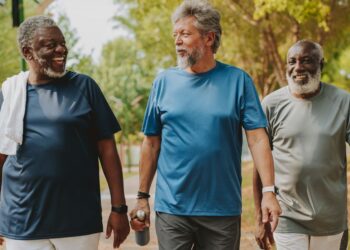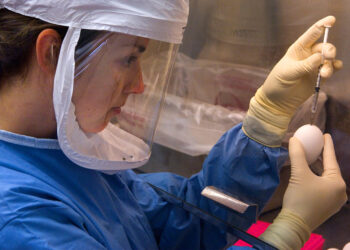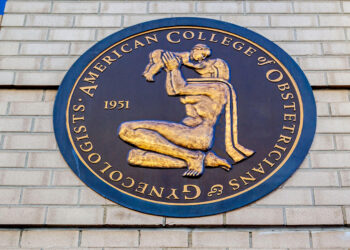Be sure to scroll down after this story to find links to extensive Medscape Medical News coverage addressing mental health and medical professionals.
Eighty-hour weeks, sleepless nights studying, and brutal competition leave little time for outside interests — or even a hot shower and a real meal. It would be completely understandable for medical trainees to abandon activities that don’t fit into the workload.
But some students have found that maintaining a hobby from their “previous life” not only is fulfilling but also can have a positive impact on their studies and even their skills as future doctors. And for others, the passions they pursued before starting med school have proven to be lifelines.
Preventing or improving mental health issues, which widely affect med school students, is a major benefit of maintaining an interest outside medicine. In a 2023 study, researchers dug deeper into 117 hobbies of over 2500 physicians, residents, and fellows. Around 94% of participants thought these outside hobbies were a “substantial mitigation factor for burnout and disengagement,” especially hobbies with “social underpinnings.” And 65.6% felt they led to better career engagement.
Surprisingly, the study also found that students who participated in more active and physically demanding hobbies, such as team sports, actually felt less exhausted than those whose hobbies included listening to music or watching television. For those who had given up hobbies, exhaustion and disengagement levels were higher.
Medscape Medical News asked med students to share how activities from their pretraining lives have helped them cope with the demands of medicine.
Training On the Run
As a middle schooler in Iowa, you would often find Courtney R. Carlson Strother, MD, on the run. That was when she started cross-country and kept going through college as both “a stress relief and social time running with friends.”

For Strother, the benefits of running are not just physical. “It allows me to decompress and is a time of meditation for me,” said Strother, who is a hand surgeon in the Department of Orthopedic Surgery at Mayo Clinic in Rochester, Minnesota.
In medical school, it might have made sense to give up such a time-consuming activity. But as a student, Strother set aside an hour per day for running, often waking up early to study and taking a break to run right before dinner.
On her runs, Strother multitasked by calling her parents or connecting with fellow med school students. “I developed some of my best friendships with running in medical school,” she said.
Strother graduated from Carver College of Medicine at the University of Iowa, Iowa City, Iowa, in 2018 and completed her fellowship in 2024. With an even busier schedule and a growing family, running remains a singular part of her life.
“I think through all sorts of problems while I run. I think about my patients, research questions, lectures I’m going to give, and any issues going on in my life outside of medicine,” Strother said. Today, she often runs with her husband (also a physician) while pushing their child in a running stroller.
“While there’s no doubt I could always read more and learn more, I think taking the time to run allowed me to better absorb and retain the material I was studying. To me, running was always a priority because not only did it make me feel better physically, mentally, and emotionally, but I felt like it made me a better learner.”
Strother said she would encourage all medical students to maintain a cherished hobby through the long process of becoming a doctor. “There is no doubt in my mind that I am a better physician, mother, wife, daughter, friend, and person because I dedicate at least 30 minutes of my day to running,” she said.
Musical Survival
When Nikolas Grotewold first began piano lessons at age 5, he might not have envisioned the role it would play in his adult life, especially as a medical student. Now in the PhD phase of his MD-PhD dual degree at the University of Michigan Medical School, Ann Arbor, Michigan, music continues to be an integral hobby despite his busy schedule.
“I knew almost instantaneously that I would need a de-stressor,” Grotewold said. “I tried exercising and meditation. But what really worked for me is being a part of the Galens Medical Society Smoker Musical at the University of Michigan as a singer and writer.”
The annual production is written and performed by medical students, often a comedic roast of their faculty and deans. Each year, the script includes inside jokes and commentary on life in the hospital setting that “only fellow medical professionals could fully appreciate.” It also gives students an opportunity to connect with faculty outside the classroom. Grotewold said one of his favorite performances involved a surprise rap cameo by a member of the neurology faculty.
“I really look forward to rehearsals,” said Grotewold. “They are an escape from the daily grind and allow me to connect with other medical students while putting a funny spin on the otherwise strenuous experience,” he said. The sense of community has also been great for his mental health, reminding him that he’s not alone on this journey.
Grotewold hopes other students know how important it is to have a hobby. “Although med school is notoriously known for occupying a lot of time and mental energy, lean into your hobbies and continue enjoying them,” he said. “A hobby is what will provide the balance after a challenging day. It’s the survival tool that might be needed after seeing a patient’s death. And it’s a way of maintaining the human side so that we aren’t physician robots that are just learning all day long.”
Light At the End of the Tunnel
Rebecca Ho, an M3 medical student who graduates in 2026 from Rutgers New Jersey Medical School, Newark, New Jersey, in the field of otolaryngology (ENT), stumbled on ceramics in high school. She describes being drawn to the “tactile nature of clay and the feeling of a different element on your skin.”

“The sensation I have of being able to create with my hands and see things come to fruition in front of me makes a lot of sense to my brain,” she said. Much like surgery. “If I can see it and touch it with my hands and use tools to manipulate it, it just kind of makes sense.”
There have been phases in med school where a ceramics room and kiln weren’t readily available, and Ho itched to get back to her hobby. “I was able to get back to the studio for the first time just this year during my rotations, and I was smiling for like 3 hours,” she remembers. “That’s the mental health part of it. It brings me back to something I’ve been doing for 13 years.”
Beyond her own art, Ho has played a pivotal role in her med school’s literary journal, Ars Literarium, serving as an editor in chief from 2022 to 2023. This year, Ho and the journal’s team found time to gather and go through each submission of writing or art.

Ho remembers choosing the cover image, a watercolor painting of a woman looking at herself in the mirror — an image that Ho felt spoke poignantly to maintaining a sense of self during med school.
“She’s in her scrubs, and there’s a candle nearby, and everything is a bit dark. It stuck with the whole team because it’s a sensation we can all really relate to — feeling really tired, looking at yourself in the mirror every day, watching the bags under your eyes get a bit darker,” she described. “But the candle was my favorite part because it alludes to burnout, metaphorically, but also a sense of hope. No matter how hard every single day seems, there’s light at the end of the tunnel — getting to be a physician and taking care of people.”
One Stitch At a Time
For Elizabeth Hines, a second year med school student at Stritch School of Medicine, Loyola University Chicago, Maywood, Illinois, the perfect way to reset and unwind after a full day of lectures and clinical rotations is with a needle in hand, embroidering her latest creation.
“I actually got into embroidery when a relative gifted me a beginner’s kit,” she said. “I loved how relaxing it was and quickly became a maniac looking for handmade shops.” Hines experimented with complicated designs in the past. But now she chooses minimalistic and repetitive patterns that don’t require too much mental effort.
While Hines admits that not every day allows her time to embroider, when she can make the time, her hobby has been an important part of maintaining her equilibrium during the grueling hours of studying and what she calls “controlled chaos.”
“There have been a lot of days where everything felt like too much,” she said. “I remember one particularly brutal week before a big test, and the only thing that kept me grounded was the expectation of the part of the day when I could get back to embroidery. Just sitting down and focusing on one tiny stitch at a time helped me keep my brain quiet. It reminded me that I didn’t have to control and do everything at once. Just one thing at a time, step by step.”
Hines jokes that her hobby might be helpful for her future suturing skills. But embroidery means much more to her than just straight stitches. It reminds her of the importance of patience and detail.
“You can’t rush through stitches or force things to go faster,” Hines said. “It’s more about being precise, steady, and staying in the moment. Whether it’s breaking down a diagnosis for a patient or just listening better, I think these skills will make me a more thoughtful and compassionate doctor.”
Hines hopes her fellow med students remember that even the smallest amount of time devoted to a favorite hobby can be important. “Med school may try to take over your entire identity if you let it,” she said. “But having a hobby, even if it’s just for 15 minutes a day, will help keep you sane. It doesn’t have to be super productive. It just has to be something that makes you happy.”
Read more about mental health challenges and solutions for medical professionals:
Med Student Mental Health: Why Future Healers Are Hurting
VIDEO: Beat Med School Burnout
VIDEO: Medical School Expectation vs Reality
VIDEO: You Belong in Medical School — Don’t Let Imposter Syndrome Win
How These MDs Conquered Imposter Syndrome
How a Mindset Shift Can Transform the Way You Practice
“I Feel Alone”: Why Loneliness Is Now Common Among Doctors
Why Do MDs Have Such a High Rate of Eating Disorders?
Why “Resilience” Can Be a Loaded Term for Healthcare Workers
How Doctors Use Travel to Heal Themselves
Source link : https://www.medscape.com/viewarticle/lifeline-helped-these-med-students-thrive-2025a1000d0z?src=rss
Author :
Publish date : 2025-05-23 08:49:00
Copyright for syndicated content belongs to the linked Source.














